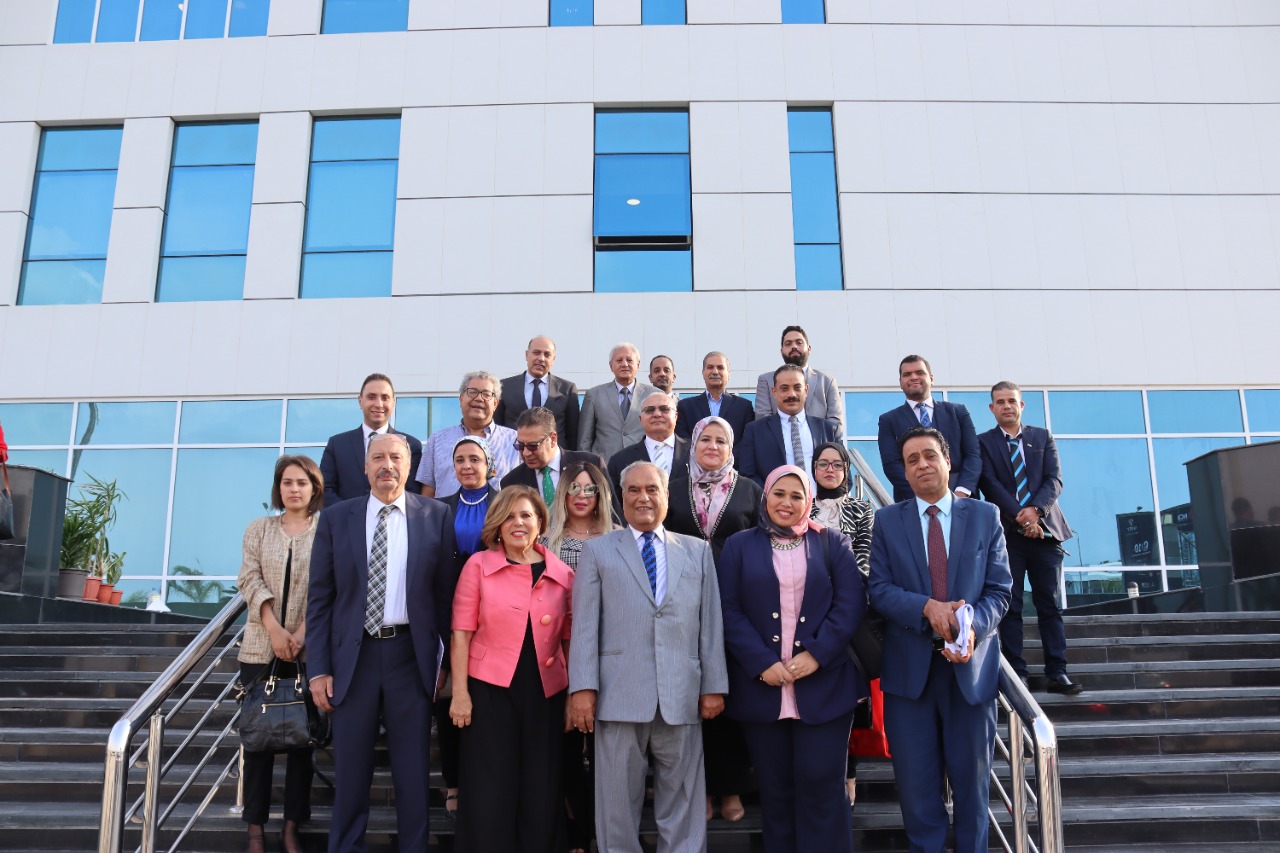Workshop on legislation to combat climate change at the National Human Rights Council (NCHR).
The National Council for Human Rights (NCHR) held a workshop on “Necessary Legislation to confront climate change” organized by the Legislative NCHR in cooperation with the Civil and Political Rights Committee of NCHR and that NCHR will organize several events to discuss this important axis during the coming period, and that this workshop dealt with a number of axes, namely climate changes in Egypt and the world, "implications and mechanisms of adaptation", legislative and executive frameworks to confront the challenges of climate change, and the governing international legislative frameworks.
The workshop was inaugurated by Ambassador Fahmy Fayed, Secretary-General of NCHR, in the presence of Dr. Anas Jaafar, Chairman of the Legislative Committee, MP Abdel Khaleq Ayyad, Chairman of the Energy, Environment and Manpower Committee in Parliament, and Counselor Muhammad Shukri Abu Rahil, member of the Technical Secretariat of the Permanent Committee for Human Rights.
Dr. Anas Jaafar said that climate change is a development issue in the first place and a human rights issue, especially since the industrialized countries are the ones that caused climate change and they must assume their responsibility towards developing countries in accordance with the provisions of the Convention and the Protocol, whether in terms of reducing emissions, transferring technology or financing adaptation funds with Climate change, stressing the need to enact the necessary legislation to reduce the risks resulting from the effects of climate change.
The representative of the Permanent Committee on Human Rights stressed the importance of this workshop, which NCHR is conducting to discuss many issues related to Human Rights, including the issue of climate change, as one of the Human Rights issues that affect human life, and that the Permanent Committee on Human Rights has, through the strategy, taken care of tightening sanctions related to the environment, He presented the five main objectives of the strategy, which are achieving sustainable economic growth and reducing emissions in various sectors, building resilience and adaptability to climate change, mitigating the negative effects associated with it, improving governance and management of work in this field, improving the infrastructure for financing climate activities, and promoting research. Scientific transfer, technology transfer, knowledge management and raising awareness to combat climate change. He said that there is a first package of proposed projects, to implement the objectives of the strategy, both in the field of adaptation and mitigation of the effects of climate change, referring to the role of the Egyptian National Council for Climate Change headed by the Prime Minister, through its role in formulating the state's general policies with regard to dealing with climate changes and working on developing and updating sectoral strategies and plans for climate change.





 English
English
 Arabic
Arabic
 French
French
